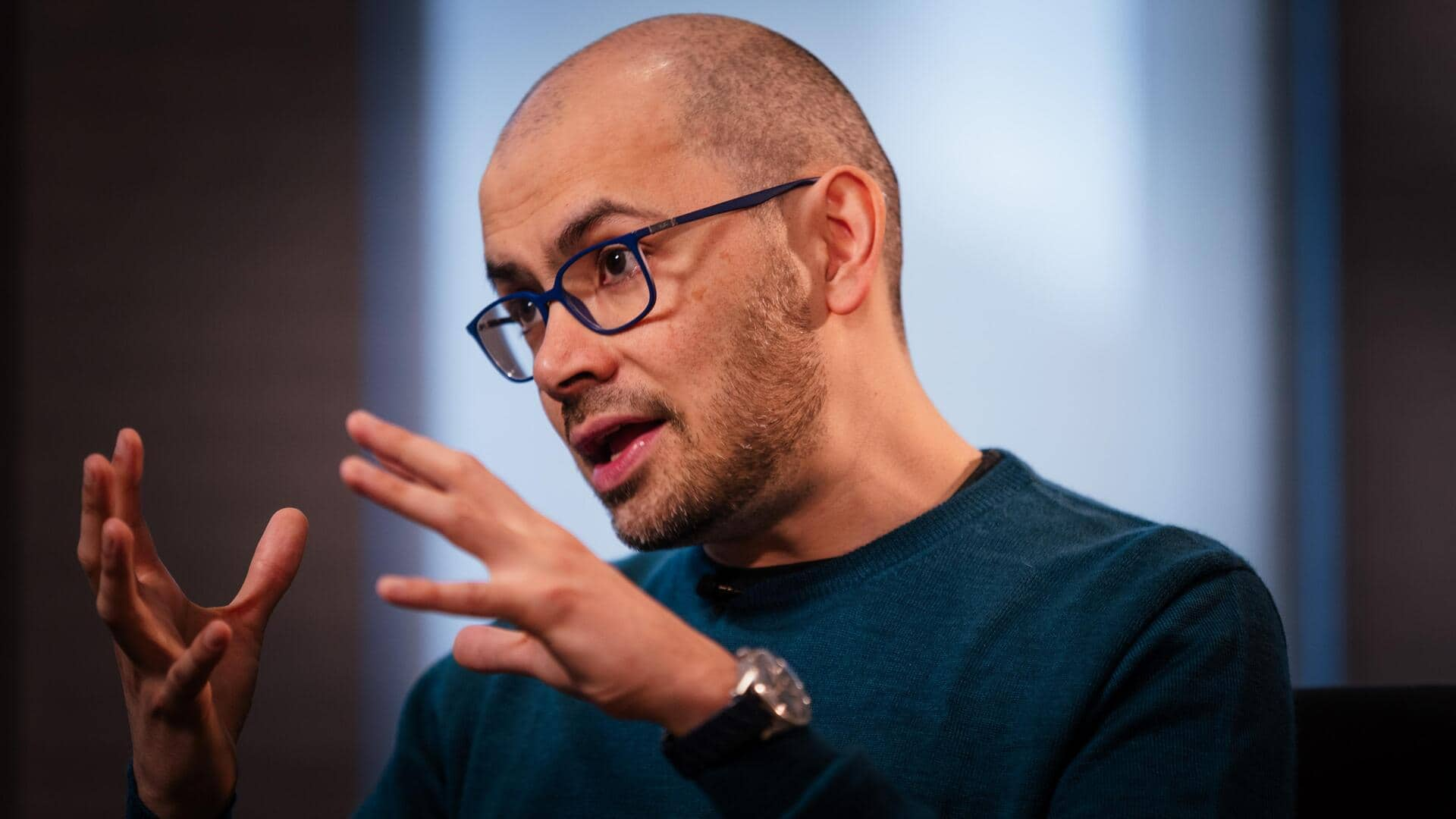
AI will help us colonize galaxy starting 2030: DeepMind CEO
What's the story
DeepMind CEO Demis Hassabis has predicted that artificial intelligence (AI) could usher in a "golden era" of radical abundance and superhuman productivity, possibly as early as 2030. He believes that AI will enhance human capabilities, particularly in fields such as healthcare, rather than causing widespread job loss. This optimistic vision is at odds with concerns that AI will take over low-skilled jobs and raise unemployment. Hassabis also asserted that AI could help humans colonize the galaxy as early as 2030.
Sector impact
AI to assist healthcare professionals, not replace them
Hassabis envisions a future where advanced AI tools will boost human productivity. In the healthcare sector, for example, he sees AI acting as an assistant to professionals rather than replacing them entirely. He said, "There's a lot of things that we won't want to do with a machine. You wouldn't want a robot nurse, there's something about the human empathy aspect of that care that's particularly humanistic."
Future outlook
New jobs will be created
Hassabis believes that new jobs will be created with the advent of new tools or technologies, and these jobs will actually be better. He said, "What generally tends to happen is new jobs are created that utilize new tools or technologies and are actually better." The DeepMind CEO is confident that advanced AI models will bring about a renaissance in human existence, with this "golden era" just five years away.
Scenario
What Hassabis said about colonizing galaxy?
Hassabis, the 2024 Nobel Prize in Chemistry winner, told WIRED, "We'll have these incredible tools that supercharge our productivity and actually almost make us a little bit superhuman." "If that all happens, then it should be an era of maximum human flourishing, where we travel to the stars and colonize the galaxy. I think that will begin to happen in 2030," he added.
Employment debate
Some experts warn about potential downsides of AI
Despite Hassabis's optimistic predictions, some experts warn about the potential downsides of AI. Dario Amodei, CEO of Anthropic, has predicted that 50% of entry-level jobs could be automated in five years. This could push unemployment rates to between 10% and 20%. LinkedIn's chief economic opportunity officer, Aneesh Raman, also said that technological disruption will first break the bottom rung of the career ladder.